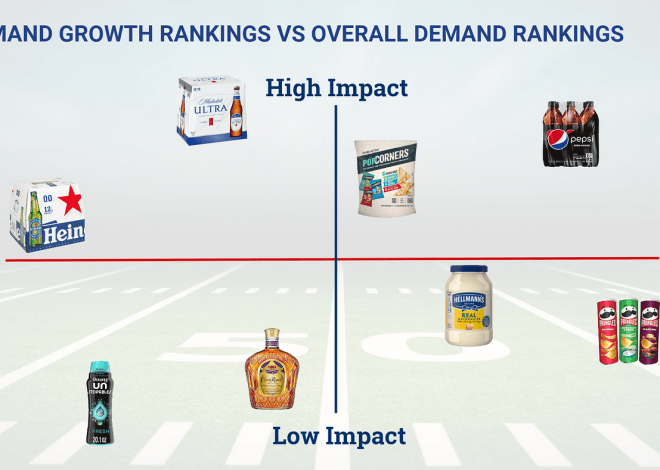Ranking the Best Superman Movies Ever Made
The Man of Steel․ The Last Son of Krypton․ These are just a few of the monikers associated with Superman, a character who has captivated audiences for generations․ His iconic image, imbued with both power and compassion, has been translated to the silver screen numerous times, resulting in a diverse range of cinematic interpretations․ This ranking aims to objectively analyze each film, weighing factors like storyline, acting, special effects, and overall impact on the cultural landscape, to determine the best Superman movies ever made․
The Golden Age: Superman’s Early Cinematic Forays
The early Superman films, released primarily in the 1970s and 1980s, hold a special place in cinematic history․ They represent a time when special effects were still relatively nascent, yet the filmmakers managed to capture the essence of the character with surprising effectiveness․ These films, often remembered with a certain nostalgic fondness, shaped the public perception of Superman for decades to come․ The limitations of the technology are evident, yet the heart and soul of the character shines through in these classic adaptations․
Superman: The Movie (1978)
Richard Donner’s “Superman: The Movie” stands as a cornerstone of the superhero genre․ Christopher Reeve’s portrayal of Clark Kent and Superman is iconic, perfectly balancing the awkward charm of the mild-mannered reporter with the godlike power of the Kryptonian hero․ The film’s visual effects, groundbreaking for their time, still hold up remarkably well, showcasing Superman’s flight and strength with a sense of wonder; The story, while simple, effectively captures the core of Superman’s moral compass and his dedication to saving humanity․ The romantic subplot with Lois Lane is equally engaging, adding a layer of human vulnerability to the otherwise invincible hero․
Superman II (1980)
The sequel, “Superman II,” though somewhat marred by directorial disputes, retains much of the charm of its predecessor․ The introduction of General Zod and his fellow Kryptonian villains provides a formidable challenge for Superman, pushing him to his limits both physically and emotionally․ While some critics argue about the tonal shifts, the action sequences remain impressive, and the performances continue to be compelling․ The film’s exploration of Superman’s struggle with his powers and his responsibility to humanity adds a welcome layer of complexity to the narrative․
Superman III (1983)
The third installment in the Reeve series, “Superman III,” marks a significant departure in tone and quality․ While still entertaining in parts, the introduction of a more comedic element and a less compelling villain detracts from the overall experience․ The special effects, while improved, show their age more noticeably than in the previous films․ However, it remains a part of Superman cinematic history, offering a glimpse into the evolution of the character’s on-screen portrayal across different decades․
Superman IV: The Quest for Peace (1987)
Often considered the weakest entry in the Reeve series, “Superman IV: The Quest for Peace,” suffers from a rushed production and a somewhat simplistic storyline․ The special effects are undeniably dated, and the pacing feels uneven․ However, it still retains some nostalgic appeal for fans of the earlier films and offers a conclusive, albeit flawed, chapter in Reeve’s Superman saga․ Despite its shortcomings, the film’s ambition to tackle global issues adds a layer of thematic depth that’s worth considering․
The Modern Era: Reimagining the Man of Steel
The modern era of Superman films has seen a renewed focus on exploring the character’s complexities and moral dilemmas․ These films utilize advanced technology to create visually stunning action sequences and delve deeper into Superman’s internal struggles․ They offer a contemporary take on the classic hero, appealing to both longtime fans and a new generation of viewers․
Superman Returns (2006)
Bryan Singer’s “Superman Returns” aimed to recapture the spirit of the Donner films, offering a more somber and introspective take on the character․ Brandon Routh’s performance is a commendable tribute to Christopher Reeve, but the film’s pacing and narrative structure are occasionally criticized for being slow-paced․ Despite some narrative inconsistencies, the film features visually impressive scenes and a heartfelt exploration of Superman’s commitment to his values․ The film showcases a strong sense of nostalgia while attempting to create a new story․
Man of Steel (2013)
Zack Snyder’s “Man of Steel” represents a significant departure from previous Superman films․ This reboot presents a darker, grittier version of the character, emphasizing his struggle to reconcile his Kryptonian heritage with his human upbringing․ Henry Cavill’s portrayal of Superman is physically imposing and emotionally nuanced, capturing the internal conflict of a hero grappling with immense power․ The special effects are undeniably spectacular, showcasing the epic scale of the battles and the destruction wreaked by General Zod․ However, the film’s intense violence and somewhat bleak tone have divided critical opinion․
Batman v Superman: Dawn of Justice (2016)
Zack Snyder’s “Batman v Superman: Dawn of Justice” features a compelling confrontation between two iconic heroes․ This film expands on the groundwork laid in “Man of Steel,” delving further into Superman’s struggles with public perception and his role in a world increasingly wary of his power․ While the plot is dense and occasionally convoluted, the film delivers impressive action sequences and explores complex themes of heroism, morality, and the public’s relationship with powerful individuals․ The film’s visual style is striking, though the film has been criticized for its pacing and convoluted narrative․
Justice League (2017, 2021)
The “Justice League” films, while not solely focused on Superman, represent a significant step in the DC Extended Universe․ The 2017 theatrical cut, while containing some noteworthy action sequences, lacked a cohesive vision․ However, the 2021 Zack Snyder’s Justice League provided a more complete and nuanced story that allows Superman’s role to be better appreciated within the larger team dynamic․ This version offers a more satisfying conclusion to Superman’s arc within the DCEU narrative, showcasing his powerful abilities and unwavering commitment to justice․
Beyond the Big Screen: Animated Adventures and Beyond
Superman’s adventures extend far beyond the live-action films․ Numerous animated movies, TV series, and video games have explored different facets of the character, often offering unique and compelling stories․ These diverse mediums allow for greater creative freedom and explore different interpretations of Superman’s mythology․
Many animated features and television series have provided compelling alternative storylines, exploring different aspects of Superman’s life, and giving audiences a chance to see the character in various contexts․ These adaptations often explore moral dilemmas and character development in ways that live-action films might not have been able to tackle․ These animated adventures offer a vast and varied landscape of Superman stories, which enriches the overall experience of the character․
- Superman: Doomsday (2007): A grim and powerful adaptation of the iconic comic book storyline․
- All-Star Superman (2011): A visually stunning and emotionally resonant adaptation of Grant Morrison’s acclaimed comic book run․
- Reign of the Supermen (2019): A thrilling story exploring the aftermath of Superman’s death․
The variety of Superman stories across various media ensures that there’s a version of the Man of Steel for every fan․ From the classic adventures to the modern reimaginings, Superman’s legacy continues to inspire and entertain audiences worldwide․ The character’s enduring appeal lies in his unwavering commitment to truth, justice, and the American way, providing a beacon of hope in a world that often needs it most․



